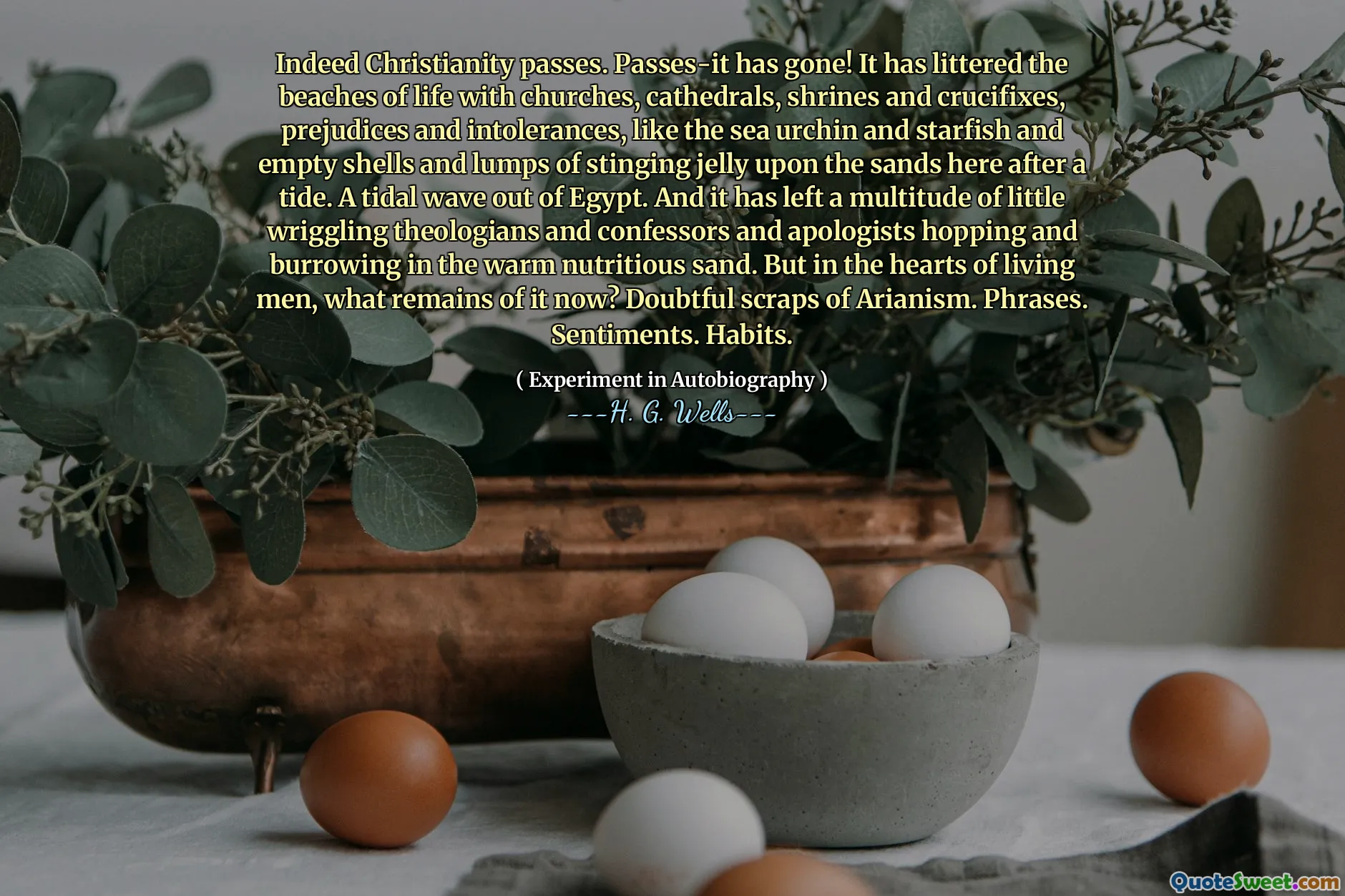
Indeed Christianity passes. Passes-it has gone! It has littered the beaches of life with churches, cathedrals, shrines and crucifixes, prejudices and intolerances, like the sea urchin and starfish and empty shells and lumps of stinging jelly upon the sands here after a tide. A tidal wave out of Egypt. And it has left a multitude of little wriggling theologians and confessors and apologists hopping and burrowing in the warm nutritious sand. But in the hearts of living men, what remains of it now? Doubtful scraps of Arianism. Phrases. Sentiments. Habits.
In H. G. Wells' "Experiment in Autobiography," the author reflects on the decline of Christianity, suggesting it has transformed into mere remnants of its former self. He paints a vivid picture of how the religion, once thriving, has left behind a multitude of churches and symbols that now serve only as memories of its past influence. Much like debris washed ashore by a tidal wave, Christianity has scattered its elements across life, revealing the aspects that remain more as historical artifacts than living faith.
Wells emphasizes that what lingers in the hearts of people is not the vibrant essence of Christianity, but rather fragments like Arianism and vacuous sentiments. The once profound teachings have been reduced to trivial phrases and societal habits that no longer hold significant meaning. This reflection highlights a shift in belief, indicating a growing skepticism and a search for meaning beyond traditional religious frameworks.

